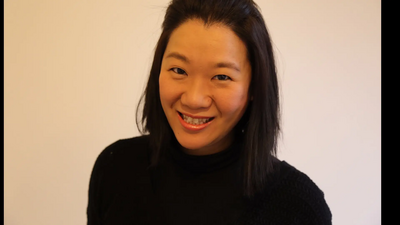We don't talk - really talk - enough about race

We don't talk enough about race. Properly talk, that is.
It's become obvious, as the Black Lives Matter (BLM) movement has come to the fore with the murder of George Floyd in the United States, that, whilst many of us who consider ourselves liberals have a desire to be anti-racist and create a society where your skin colour does not determine your life chances, we lack the language and the understanding of how to achieve this.
We excel, instead, in talking around the edges of it: about statues, colonial history and political history.
If you agree, I would heartily recommend the book: "Me and White Supremacy" by Layla F Saad - as an essential read, whether you are white or not. It has given me a language, terms and understanding of issues around race and discussing race that have long troubled me, that I have had no easy way to express.
As a British-born Chinese person growing up in a predominantly white market town in Lincolnshire, racial abuse was a daily part of my life. Being called a "ch*nk" and having eyelids pulled up into slits was my, and my fellow Chinese friends and family, start in the journey to knowing we were different.
Covid has brought a huge spike in race hate crime. A friend was recently called two bad C-words whilst running along the River Cam (yes, also here in leafy, liberal Cambridge).
I'm a mum of two mixed race children who are on the precipice of being racially abused for the first time in their life. They aren't coming to understand that they are different from their friends and neighbours. I feel more than ever that we must honestly and openly talk about race.
The BLM movement can't be just a passing fad. We need to start the hard, daily work to build an anti-racist society that we can be proud of.
For me, that starts with being honest with ourselves. If you're white, it's being honest about the privilege which you are born with because you're white. That if you have white children, you won't need to have the conversation I will shortly have with my own children about why someone has called them a "ch*nk". - That when you go to the book section at our local supermarket you will easily find heroines in storybooks that look like your children but hardly any will look like my daughter. …Or the other 48 examples of white privilege first identified by Peggy McIntosh, who coined the term.
Next we must address structural, systemic, institutional racism in our society. Racism isn't just being called names in the street or being followed around a shop because you're black. It's being honest that we do not live in an equal society now, in 2020. That 48% of BAME children live in poverty not because of prejudice but because our society is fundamentally, structurally racist. This is absolutely not the same as saying most British people are racist. Being able to have these conversations honestly and openly is key. Unfortunately I keep encountering white fragility.
When discussing racism as Liberal Democrats we must resist focusing on topics we are comfortable with - language, history, debating of "facts" - this manifests itself in endless discussions on statues, on colonial history, the appropriate use of terms such as "white fragility" or "racial gaslighting" - these are important - but it can often seem that LibDems are more focused on debating these than having genuine discussions on how to be an anti-racist.
Read Layla F Saad's book and let's have those necessarily uncomfortable conversations on how much we need to do.
